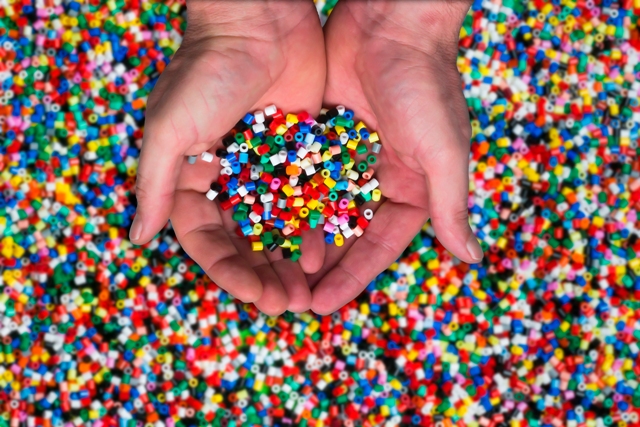
Conventional plastic recycling techniques use large quantities water. In order to avoid this waste, Marco Adame founder of Ak Inovex, has recently developed a new green technology which does not require the use of liquids.
This new technique can process a wide range of materials such as Acrylonitrile butadiene styrene (ABS), polystyrene and styrofoam using the same types customizable machinery which are currently used in industry.
This technology can process more than 90 percent of any type of plastic and can reduce the production costs by almost 50 percent, without compromising the quality of the recycled pellets. It also avoids water waste during processing and removes the stages from conventional processes which require sudden temperatures changes.
The conventional recycling process involves washing plastic containers before then grinding them into beads. As plastic is hygroscopic in its nature, it retains moisture upon contacting with water. In order to be dehydrated, the plastic has to be crystallised using the application of heat at a temperature of 180ºC, before then being cooled by water.
In contrast, the AK Inovex technology performs this process and produces recycled beads without using water. This results in reducing the energy consumption by half and also reduces the physical space required to carry out the process in due to its compact design. In addition, obtaining pellets of a superior quality increases the profitability of the recycling process.
Ak Inovex has a pending patent registration of the three technologies that integrate the development, which are responsible for cooling the plastic through contact with special walls and form the plastic beads.
Marco Adame, founder of Ak Inovex
The main advantage of the technology is its capability to be able to recycle any type of plastic, such as styrofoam, polystyrene, PET and ABS. The current production capacity of plastic beads is two tons and the research team is working to further increase the capacity to ten tons.
In the near future the company is planning to develop an ecological washing machine suitable for treating plastics with a special biodetergent, which is expected to further reduce operational costs.
This project was the result of a joint effort by Marco Adame’s team and the manufacturer of eco-friendly cleaning products, the ALINSA group.